Search Results
Showing results 21 to 40 of 120
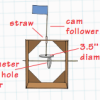
Crank It Up
Source Institutions
In this engineering activity, learners explore simple machines and then build cardboard automata using cams.

Engineered Sports
Source Institutions
In this activity, learners explore the concept of how aerospace engineering has impacted sports, specifically exploring the design of golf balls.
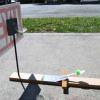
Parabola Basketball
Source Institutions
In this activity, learners build mini-basketball courts and explore the laws of physics. Learners discover that everything you throw or shoot on earth travels in a parabola.
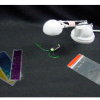
Why are Compact Fluorescent Bulbs More Efficient?
Source Institutions
In this activity, learners explore the relative efficiency of different bulbs, specifically incandescent vs. fluorescent.
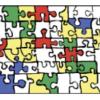
Finding a Gene on the Chromosome Map
Source Institutions
In this activity, learners use pedigree and jigsaw puzzles to explore how scientists use genetic information from a family to identify a gene associated with a genetic disorder.
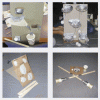
Get-Moving Game
Source Institutions
In this invention challenge activity, learners create an indoor game for one or two people that gets you moving.
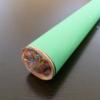
Kaleidoscope
Source Institutions
In this activity, learners build inexpensive kaleidoscopes using transparency paper and foil (instead of mirrors).
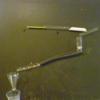
Magnetic Marble Run
Source Institutions
Learners explore magnetism and motion as they build a simple marble run. Learners test different arrangements of plastic and cardboard tubes, bottles, and cups on a magnetic board.

Reusable Rockets
Source Institutions
This activity (located on page 3 of the PDF under GPS: Garbology Activity) is a full inquiry investigation into design optimization using recycled materials.
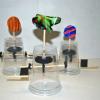
Micro Automata
Source Institutions
In this activity, learners build small animated toys that move.
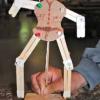
Lever Cowboy
Source Institutions
In this activity, learners build a figure that moves and "comes to life" when they pull its string.
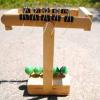
Newton's Cradle
Source Institutions
Build your own version of the classic physics toy using simple materials.

Tinkering with Tops
Source Institutions
In this activity, learners explore the history, design and motion of spinning tops. Learners work in teams of "engineers" to design and build their own tops out of everyday items.
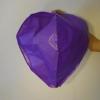
Hot Air Balloon
Source Institutions
In this activity, learners build a hot air balloon using just a few sheets of tissue paper and a hair dryer.

Hand Spin Helicopter
Source Institutions
In this activity, learners build helicopters and launchers using wooden dowels and scrap paper. Use this activity to explore rotational motion and kinetic and potential energy.
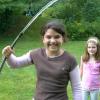
Gravity Fountains
Source Institutions
This activity (located on page 3 of the PDF under GPS: Glaciers Activity) is a full inquiry investigation into the forces of gravity and air pressure.
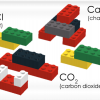
LEGO® Chemical Reactions
Source Institutions
This activity uses LEGO® bricks to represent atoms bonding into molecules and crystals. The lesson plan is for a 2.5 hour workshop (or four 45-minute classes).
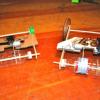
Bottle Cars
Source Institutions
In this activity, learners explore motion, energy, and electricity by constructing bottle cars that run on motors.
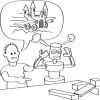
Programming Languages: Harold the Robot
Source Institutions
In this activity related to computer programming, learners give directions to a "robot" (either an adult or another learner) and find out which instructions the robot is able to follow, and how their
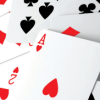
Odd Man Out
Source Institutions
In this math game (Page 14 of the Are You Game? PDF), learners determine the probability of getting an even versus an odd product using the numbers on a regular deck of cards.
